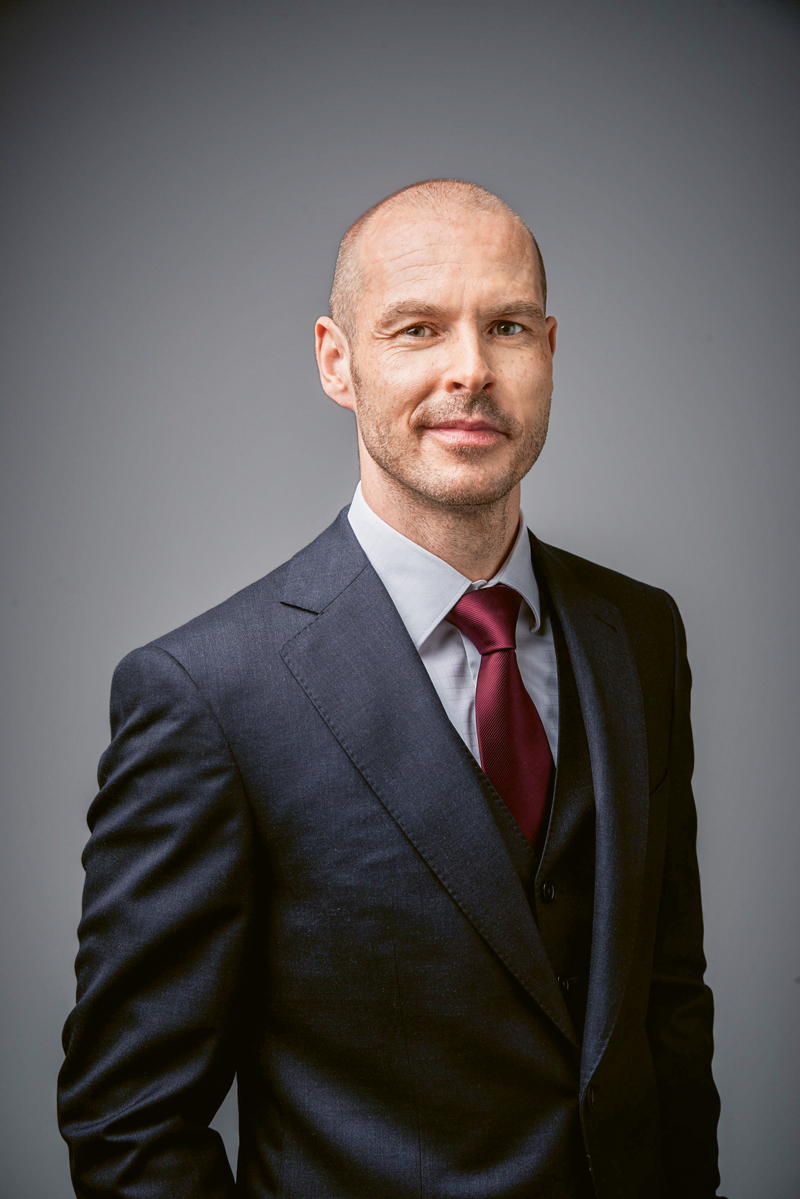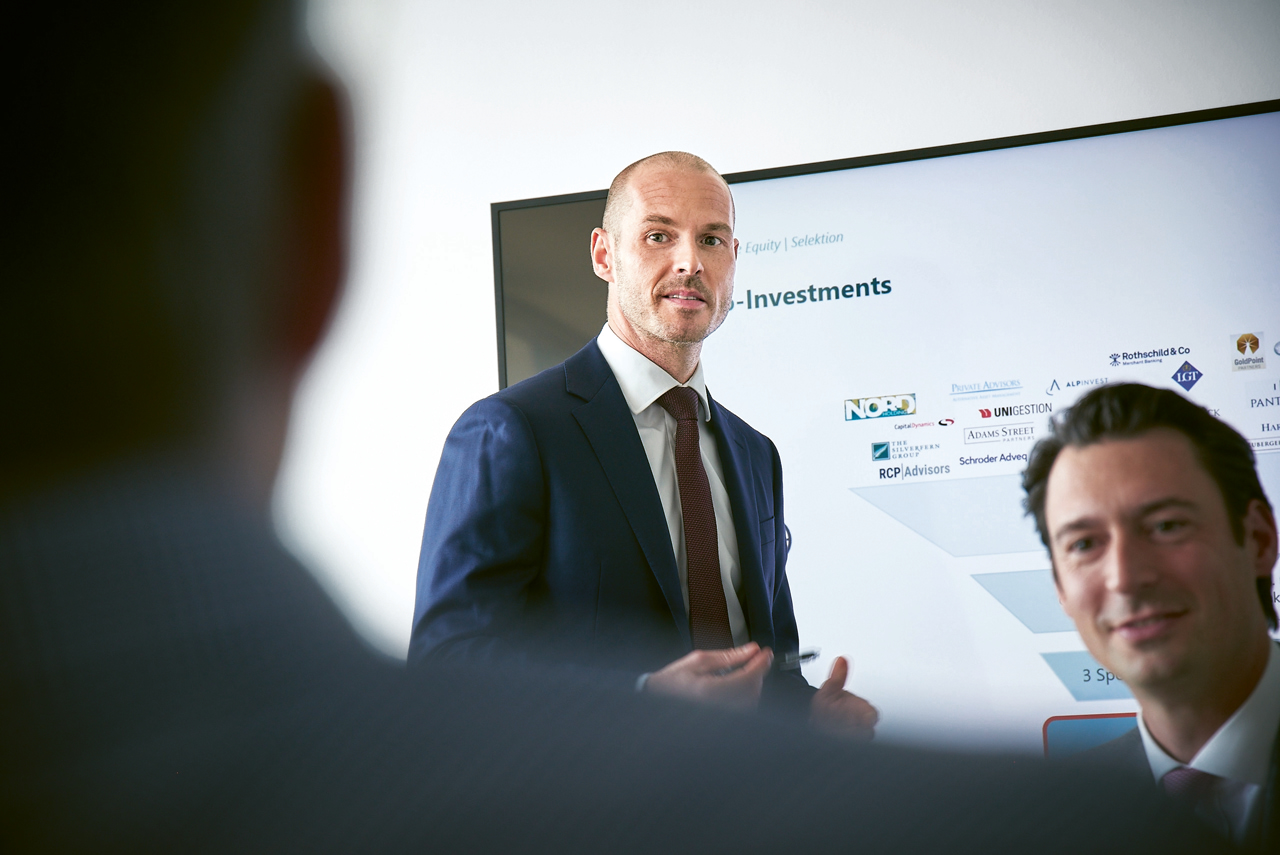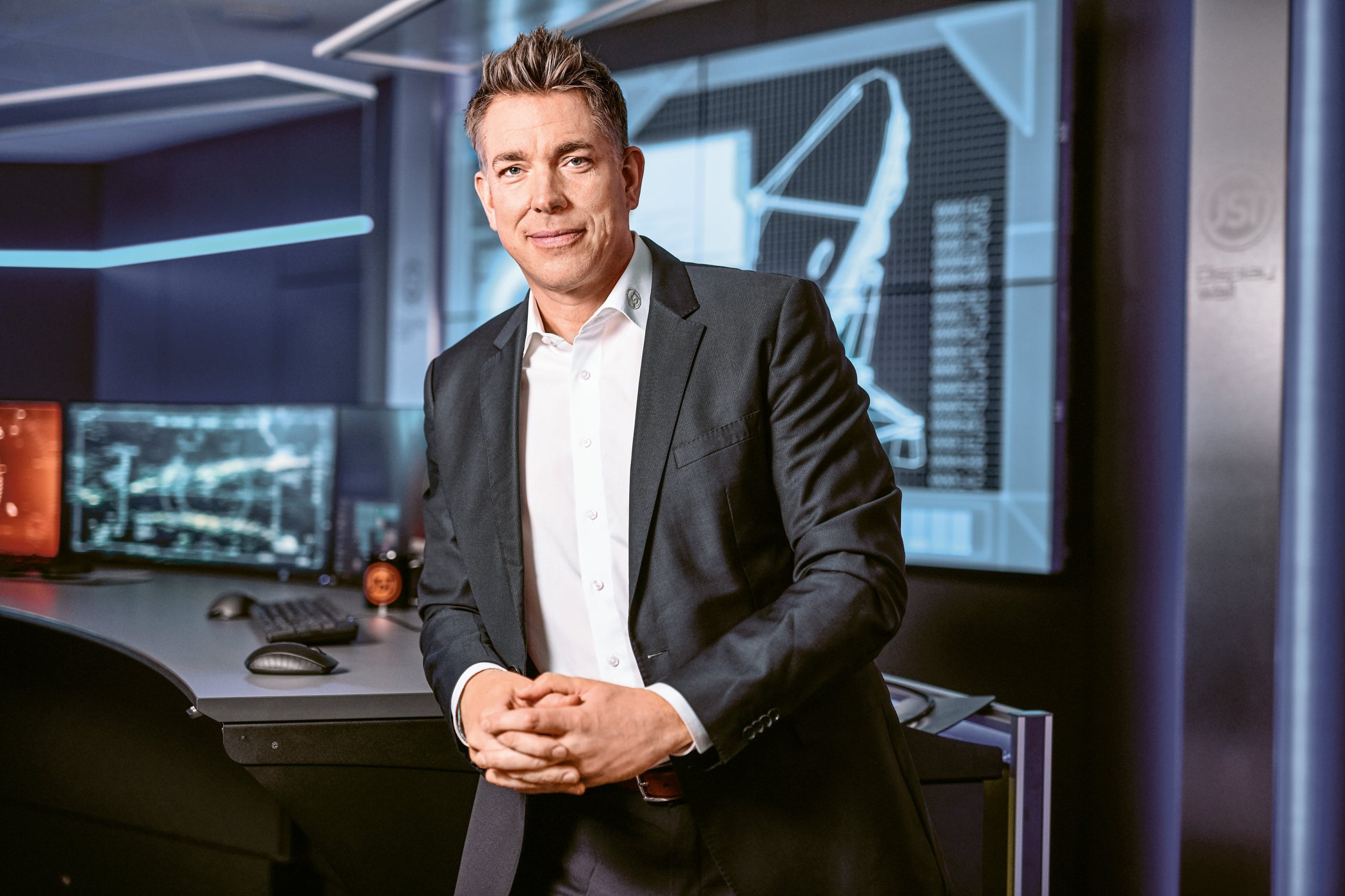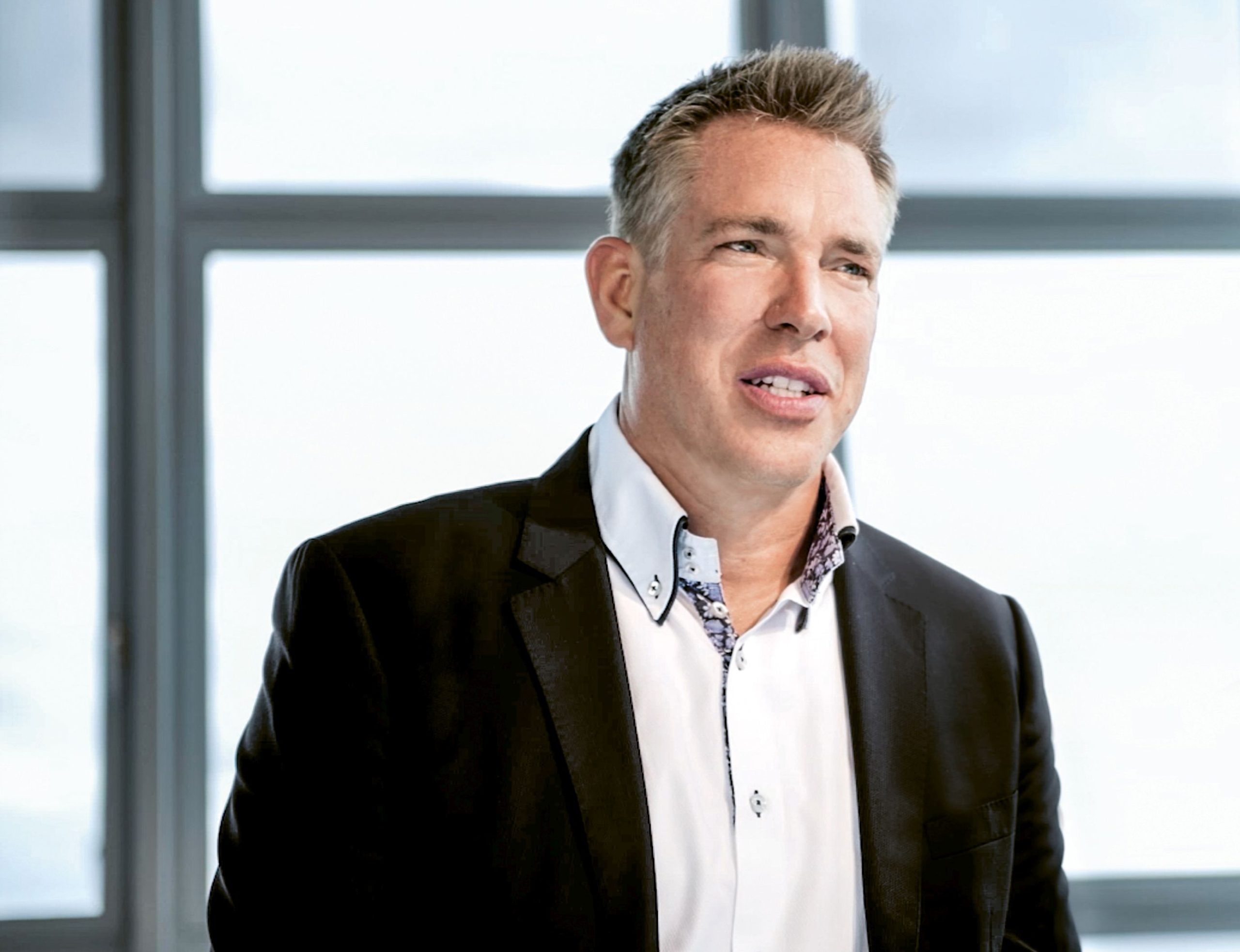THERE ARE NO BLUEPRINTS FOR A GOOD MATCH
CORPORATE TRANSACTIONS FROM THREE POINTS OF VIEW
Many interests have to be aligned nowadays to bring companies together, but what matters most is a common outlook. Dr. Thomas Bister, Carsten Jungmann and Dr. Johannes Schmidt on coming together in a changing corporate landscape.
Dr. Schmidt, do you view your target companies differently now than you did in the past?
I’ve been with INDUS for seventeen years now. I witnessed the first acquisition back in 2006. Since then the pace on the markets has accelerated considerably. This has also changed how we view the companies we are acquiring – we place much greater emphasis on future development potential now than we did in the past. I also sense the same attitude in the entrepreneurs looking to sell. In the past their focus was very much on preserving their life’s work. Now, they are asking: “What are the future development prospects for my company with you? What can you contribute to my business that I couldn’t manage by myself?”
I second that. Back in 2006, entrepreneurs had the luxury of taking their time to think about what steps to take next to advance their business. Nowadays it is all about thinking three steps ahead to safeguard the company’s future. You could even say that companies today have to invest more energy into the future than they do on the present.
Good communication is essential for making THE RIGHT DECISIONS.«
Carsten Jungmann
Dr. Bister, as the managing director of a multi-family office you support the owners of family-run businesses when it comes to selling their companies. What role do you play in the process exactly?
I come into play when entrepreneurs arrive at a point in their business’s development where they discover that something has to change. This basically takes one of two forms. Either an entrepreneur has grown the business to a point where they need resources to keep moving forward – that is, they are looking for someone to help them go further with what they have already achieved – or they are facing successor issues. In this case the owner is looking for someone to build on their success so far because they don’t want to continue and there is no successor in sight. They want the jobs they have created to be maintained and for the company to keep its position in the market.
These are two very different situations. The first case is complicated – we’re looking for someone to get behind the development plans. A lot of components have to align: economic expectations, social aspects, common approaches to the path the company will take in the future. The second case, where we are looking for a successor, is somewhat simpler. The main objective here is to find someone who fits with the company’s values.

The Board of Management is involved as a point of contact throughout the entire sales process.
INDUS opens up doors to the future for its companies.«
Dr. Johannes Schmidt
Mr. Jungmann, you joined INDUS with your company in 2020 and both of the above applied in your case: An owner wanted to leave but the company wanted to continue operating and growing.
That’s right. My former business partner, Kay Hansen, left the company when we finalized the agreement. He was 57 at the time of the sale and was looking for a new challenge. I was 48 and still very much enjoyed the work I was doing. So it was clear to me that if my new partner was willing to provide an appropriate work-life balance, I’d be happy to continue at JST into the future. Apart from that, my business partner and I were both aware that a successful change of control as we imagined it would only be possible if at least one of us stayed with the company.
Mr. Schmidt, does INDUS require an owner to stay on at the company as a manager after a sale?
It is not a requirement, but usually owners who have run the business do stay on as managing directors, at least for a while. We believe that this support from the previous owner makes the transition to new ownership run much more smoothly.

Dr. Johannes Schmidt
Dr. Johannes Schmidt has been a member of the Board of Management of the INDUS holding company since January 2006. He assumed the position of Chairman of the Board in 2018. The mathematics graduate went on to earn a doctorate in mechanics. Prior to joining INDUS he held various roles, including managing director of ebm-papst Landshut GmbH and Richard Bergner GmbH.
Mr. Bister, what type of company do you consider INDUS to be in particular?
Let’s imagine I’m advising a fundamentally solid small or medium-sized manufacturing company. Basically, I would look at three types of buyers: The first is the financial buyer. They are mainly interested in the figures. They optimize the company, using their network, for instance, in order to sell it again for a profit. Then there are the strategists, who buy companies with a similar technology to their own and integrate it into their structures. Then there are the company developers. This is the group INDUS belongs to. They look at the specifications and say: We have the expertise and experience, and can offer this company a future if we buy it.
The entrepreneurs that I advise are especially happy with partners who understand their business, who know what the business is about and have proven technical credentials. It makes a difference to my work when I have someone like Dr. Schmidt or one of his Board colleagues who can speak to the entrepreneur about the main issues from a position of real knowledge. The interests of family-owned businesses are best represented in this constellation.
Dr. Thomas Bister
Dr. Thomas Bister has been the managing director and shareholder of Tertium Family Office GmbH since 2019. Prior to this, he held roles as Head of M&A at a corporate finance consultancy and director of an issuing house for investment offerings. Dr. Thomas Bister studied international business administration and law. He began his career as a bank management expert.

INDUS als INDUS is a company developer. This is a term that INDUS hasn’t really used to describe itself so far...
... Though exactly this approach is reflected in our PARKOUR strategy program – particularly the two pillars of “Driving innovation” and “Improving performance.” We believe that our expertise, especially when it comes to methodological knowledge and networks, can help our portfolio companies to advance. Of course, I wouldn’t go into details with Mr. Jungmann about his software – every portfolio company maintains the autonomy over its operations. But we can offer support in bringing products to new markets or advising on what other marketing options are available.
Dr. Bister, what role does technological expertise play in the sales process today?
A very important one. But personally, I’m always interested in the figures to begin with. Getting an understanding of the company’s price-volume structure is my first task. How does the company earn its money? What factors have an impact on its income? Technology is the biggest lever in improving efficiency. It also lays the path for future viability – because many business models change fundamentally, particularly as a result of advancing digitalization. We discuss all these with the company and create a vision of how the corporate value outlook can be improved before we bring the company to market.
Dr. Schmidt, why is INDUS a good match for technology-based industrial companies?
INDUS has a broad range of expertise to draw on thanks to the variety of companies we hold. Technology plays a major role at virtually all of our portfolio companies. We stand directly at our companies’ sides and provide support with our expert knowledge, our network, and by setting up technology-based group projects. This opens a lot of doors to an innovative future for the companies that join us. INDUS’ technological expertise is also reflected in the CVs of its Board members: We have a broad range of experience in operational functions at manufacturing companies under our belt. I think it is fair to say that we are well-versed in this area of business, so we know where a company has to start to ensure its future development is successful.

Before a decision is made, Dr. Thomas Bister normally holds a lot of discussions.
The STRATEGIC FOCUS of buyers can vary greatly.«
Dr. Thomas Bister
What do you think the most important task is when it comes to choosing the right new owner, Mr. Bister?
First and foremost I would say we have to find out what the previous owners’ motivation and objectives are. One key question is how far the owners are willing to compromise on the purchase price in return for more soft skills. Of course, if I approach a buyer from an English-speaking country who is only interested in profit, for example, I can get a better purchase price. At the same time, I’m giving the buyers the opportunity to go into the company with a lot of leverage. This means they can and will use the company to take up credit to counterfinance the purchase, and in the end the company will end up paying the purchase price. They will also focus on cost potential, which may lead to employees being laid off. If the previous owners want to find someone who will focus on conscientiously taking the company forward and fostering its culture, they must be clear that this will not bring in the highest purchase price.
On average I provide advice to the entrepreneurs in a sale process for between 12 and 18 months. During this time we have a lot of professional and psychological discussions. And, just like me, the majority of the owners do not like the idea that just a few months after a change of ownership a third of the workforce could be laid off. And so they usually try to find a compromise between maintaining the company’s culture and achieving a higher purchase price. This decision strategy is supported by the fact that many of the previous owners usually remain connected to the company in one way or another after the sale.
Mr. Jungmann, Dr. Bister also guided you through the sale process ...
... Which I am still grateful for to this day. My business partner and I had prepared JST operationally for a potential change of control. We had brought in a new level of management and set up processes so that the transfer could take place at any time. But we never thought about what type of buyer we would be willing to sell to. We only came to understand just how important this question was during the sales process. We played through various sales scenarios together in workshops – considering financial investors, private equity firms and holding companies. And in each case we asked ourselves what it meant for us, our employees and our future? Thomas Bister explained the different types of buyers to us, how they operate, and what their motivation might be for buying our business.
During this process we became aware of a number of things that we would not be willing to consider. Having employees reapply for positions that they currently hold may be common practice in some M&A processes, but it absolutely would not have been in line with our corporate culture. Being integrated into a fund was another option, with the possibility of being sold again in a few years – the very idea would have brought so much unrest into the company that its spirit would have disappeared from one day to the next. INDUS was able to clearly differentiate itself from other models with its “hold and develop” concept. Of course, I now have to answer to someone. Instead of my business partner, it now happens to be the INDUS Board member responsible for JST, Dr. Großmann. And with INDUS I have an owner and partner that I know meets my and the company’s expectations. Without Thomas Bister’s transformative performance we would not have managed it.

Carsten Jungmann
Carsten Jungmann hails from the region of Sauerland, and in 2001 he founded JST – Jungmann Systemtechnik GmbH & Co. KG with this then business partner Kay Hansen. The company specializes in the design, construction and maintenance of control room solutions. Prior to this, he worked in sales for his parents’ company, which specialized in the production of furniture for control rooms.
Sale processes require a great deal of discretion. Dr. Bister, Dr. Schmidt: How do you ensure this confidentiality is maintained?
You can only expect discretion from others if you yourself are discreet. You can only build solid relationships based on trust if you are absolutely reliable and you consciously remove those from your network who you know are not. This is one of my golden rules. It is also important that you know the parties well and can appraise situations correctly. Once all these conditions are fulfilled, you arrive at a point where you just know you can speak to a person in confidence and the information you provide will not be public knowledge in two weeks.
You could say that discretion is just a question of discipline. But that isn’t the full story. Discretion must be a part of your conduct without it having to be written in a code for you to follow or ensured through the threat of fines. Anybody who works in M&A just has to be aware of how sensitive this topic is. Competitors, customers, employees – the uncontrolled spread of information could damage any one of these groups, and would not be good for any of those involved. In my experience, too, discretion can only be guaranteed if you surround yourself with the right people.
Mr. Jungmann, your team knows you well and probably picks up on the slightest of changes. How did you manage to keep your intentions confidential while continuing your work?
Well, in the end there is no way around informing the managers of what is going on. Nevertheless, discretion was a top priority, especially during the first phase. During the sales process, we were bidding on major projects in a very agile competitive environment. If we had left ourselves open on one flank in a way that the market could have interpreted as uncertainty, the customers would surely have had their doubts. Nothing was made public unless we made it so during our process. It all worked perfectly.
Cooperation is always driven by mutual expectations. What do you expect from INDUS, Mr. Jungmann?
The main expectation that my team and I have of INDUS is reliability – that promises are kept. Before the deal was closed, INDUS presented us with a concept in which there was no operational interference or only a little in the business model. We’ve been part of the INDUS Group for one and a half years now, and I can confirm that this concept is really how the Group operates. Nothing has changed in our coordination and decision-making processes. Knowing this has brought a calmness back to the team that we had lost for a little while. There’s no point beating around the bush – when there is a change of ownership, initial unrest in the company is natural.
My long-term expectation is that we will continue to be well-supported and have a reliable partner for our development. We have built JST up over twenty years; it runs perfectly and enjoys a good reputation on the market. When it is time for me to leave the company, I want the culture and values that make the company what it is to live on. This should be the foundation on which JST continues to achieve its full potential. Based on what I have seen so far, I’m confident that this will happen with the INDUS Group at the helm.

Carsten Jungmann continues to manage JST’s operations following the sale.
Looking back, I would DO IT ALL AGAIN.«
Carsten Jungmann
What is your new workday like? How does INDUS support you and your company?
A specific example would be that we can now rely on INDUS for things we simply couldn’t have managed on our own. This includes drawing on their expertise of expanding into international markets. With its funding, INDUS also gives us the financial strength to be able to follow such paths. When it comes to everyday topics like recruitment, too, we have already benefited from the added value that INDUS offers. They make the process quick and simple. I’d barely mentioned recruitment before we were connected to a headhunter network for our industry.
One thing that I’m really happy about is the direct communication between managing directors and the INDUS Board of Management. We have regular appointments but I can also reach out to the Board of Management if something comes up. Apart from the fact that their input is usually very helpful, as the managing director of a relatively small Group company – our staff consists of 30 employees – it also strikes me as a mark of great esteem.
Dr. Schmidt, we’ve already touched on your new view of potential target companies. Has anything changed in terms of your concrete acquisition criteria – for instance, issues relating to the opportunity and risk profile or the operations profile?
As I mentioned earlier, a company’s potential is a much more important factor for us. To be able to assess this potential we have internal experts who are closely involved with the M&A process from the beginning. In some cases, these are the same experts who will later advise the portfolio companies on a professional level. Depending on the issues that arise, we may also bring external experts on board. They examine the potential acquisition’s market profile, for example, so that we can quickly get a picture of the company’s opportunity and risk profile.
In terms of business activities, we take a closer look at sustainability nowadays. There are fields that INDUS now rejects out of hand, such as companies involved in coal, stimulants and gambling, while we have opened up to new fields. Ten years ago we exclusively invested in traditional manufacturing companies; now Mr. Jungmann’s control room specialist company also fits our portfolio.
A hot topic on the market at the moment is rising purchase prices.
The high degree of liquidity on the capital markets at the moment means we are clearly in a seller’s market. So, firstly, valuations are rising. Secondly, we are competing with players that have not been as active on the market in the past. One example would be larger family offices – while in the past they tended to be silent partners, today they are more interested in takeovers. Then there are a number of private equity firms who want to invest their money in the most profitable way. On top of that there are strategic investors – industrial companies are going through a transformation and need to find ways to reorient themselves.
This means we have to increase our efforts in bringing attention to ourselves through our M&A marketing. We have to communicate our story well and make sure that when the right candidates come across Mr. Bister’s desk, he automatically thinks of us. This is quite a change for us.
So the current market is making your job easier, Dr. Bister?
Well, at least when it comes to the number of possible matches. The amount of liquidity available has grown exponentially since 2008, so money is no longer a differentiating factor. This brings us back to Dr. Schmidt’s bottom line: Finding the right positioning has become one of the most important tasks for buyers.
However, the situation has also become more complex for sellers. It has become increasingly difficult for them to determine whether it is the right time to sell. How will the market develop during this transition phase? How can I create a reliable five-year plan? Answering these questions is not easy without a crystal ball.
There are no blueprints for a good match. This makes the job I do more difficult – at the very least with respect to my role as a mediator and the responsibility I bear. I have to really get to the heart of the issues for each candidate and this sometimes means communicating the fact that it is in the owner’s interest to wait a while before selling.
Mr. Jungmann, as the nolonger-newest member of the INDUS Group, could you share your closing thoughts with us?
If I was back at the notary’s office in Cologne today – I would do the exact same thing again. After the last one and a half years I can say with confidence that we absolutely made the right decision. In partnership with INDUS, we are in the process of bringing our company – in my mind it still feels like my company– to the next level. And I can’t wait.